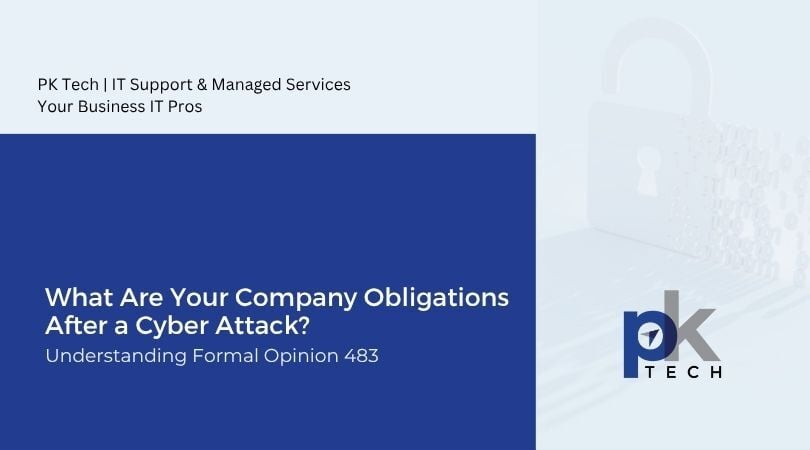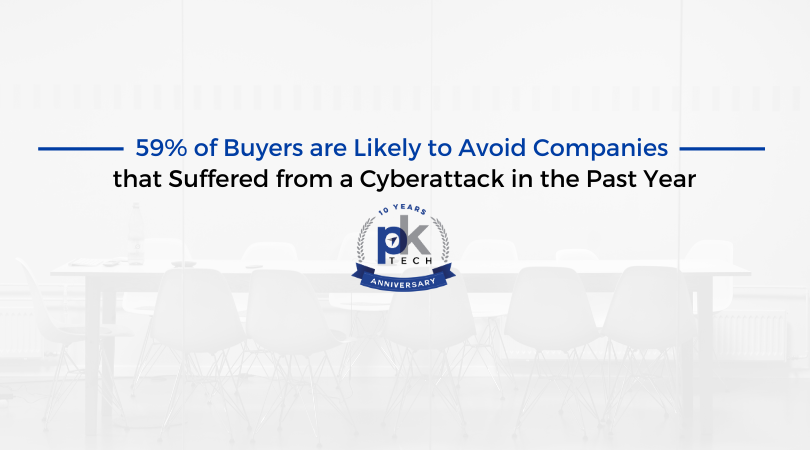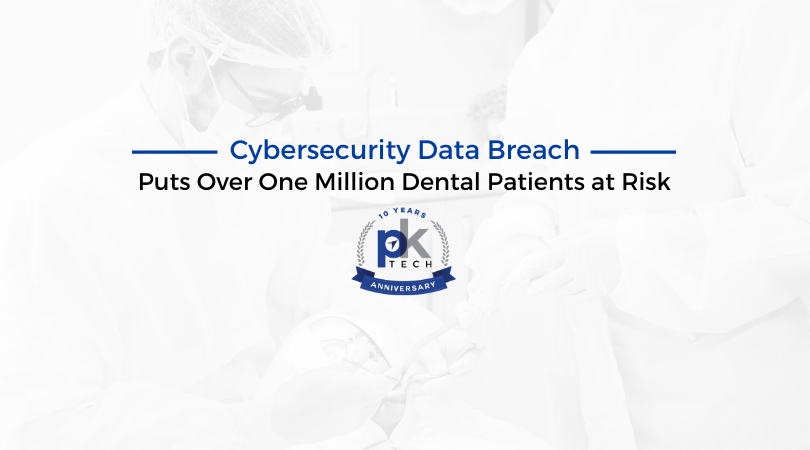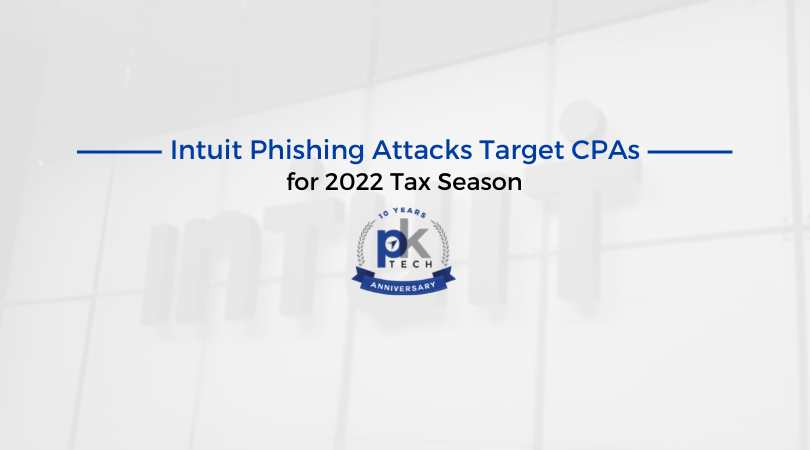59% of Buyers are Likely to Avoid Companies that Suffered from a Cyberattack in the Past Year
In the ever-changing and competitive marketplace (Thank you global pandemic!), gaining and maintaining buyers for your products or services is more...
3 min read
 Jordan Hetrick
:
October 27, 2025
Jordan Hetrick
:
October 27, 2025

Know this: cyberattacks are not a matter of if but when. From ransomware to phishing and data breaches, no organization is immune to cyber threats.
For companies, especially law firms and organizations handling sensitive client data, the aftermath of a cyber incident carries serious ethical and operational implications.
One key guideline that outlines these obligations is Formal Opinion 483, issued by the American Bar Association (ABA).
As a managed IT services provider, we often help clients navigate both the technical and ethical responsibilities that arise after a breach. Understanding this opinion is essential to maintaining compliance, trust, and resilience.
ABA Formal Opinion 483, titled “Lawyers’ Obligations After an Electronic Data Breach or Cyberattack,” was issued by the American Bar Association’s Standing Committee on Ethics and Professional Responsibility in 2018. This formal opinion provides ethical guidance for lawyers and law firms on what to do when a data breach or cyberattack compromises client information.
While it directly applies to attorneys and legal organizations, the principles it lays out, specifically around data protection, communication, and recovery, are relevant to any business that handles confidential or sensitive data. Formal Opinion 483 reinforces that professionals have an ethical duty to take reasonable steps to protect client information, detect unauthorized access, and respond promptly when a breach occurs.
At its core, the opinion emphasizes three main responsibilities:
Once a cyber incident occurs, the first obligation under Formal Opinion 483 is to take reasonable steps to stop the breach and limit further exposure. From a managed IT perspective, this includes:
Formal Opinion 483 recognizes that even the most diligent firms can be victims of cyberattacks. What matters most is how quickly and responsibly the organization acts once the incident is discovered.
Pro Tip: Implement a 24/7 network monitoring system and incident response plan so your team can act within minutes (not hours) after detecting suspicious activity.
The second major obligation involves communication. If the breach affects client data, firms have an ethical duty to notify those clients promptly and transparently. This includes:
For companies outside the legal field, this principle still applies through data privacy laws and breach notification regulations, such as state data breach laws or the GDPR.
Pro Tip: As a managed IT provider, we help clients build incident response and communication plans that meet both ethical and regulatory requirements, ensuring timely and accurate notifications.
Formal Opinion 483 doesn’t stop at incident response; it also reinforces the importance of preventive cybersecurity measures. Companies are expected to make “reasonable efforts” to prevent future breaches.
Best practices include:
Investing in preventative security is not only good IT hygiene; it's more importantly a core part of fulfilling your ethical and legal obligations.
After the breach has been contained and clients notified, the next step is documentation and review. Formal Opinion 483 stresses the importance of evaluating what went wrong and how to prevent recurrence.
Post-incident reviews should include:
A managed IT provider can assist with post-incident reviews, helping translate lessons learned into practical upgrades, such as improved network segmentation, stronger access controls, or refined backup and recovery strategies.
Formal Opinion 483 serves as a critical reminder that ethical obligations and cybersecurity readiness are deeply interconnected. Whether you’re a law firm or any organization handling sensitive information, your duty to protect client data doesn’t end when an attack occurs. Your obligation begins with preparation and continues through transparent, well-documented response efforts.
 As a trusted managed IT partner, we help organizations meet these obligations through:
As a trusted managed IT partner, we help organizations meet these obligations through:
Do you have questions about Formal Opinion 483?
Do you have concerns about your organization’s compliance efforts?
We’re here to be a resource and support for your business. Contact our team for a complimentary evaluation here.

In the ever-changing and competitive marketplace (Thank you global pandemic!), gaining and maintaining buyers for your products or services is more...

The dental industry is one of the latest industries under attack from dire cybercriminals, with many crooks taking advantage of weaknesses exposed...

The tax software company Intuit recently released two formal warnings regarding phishing emails ahead of the April 15th tax deadline. You can read...